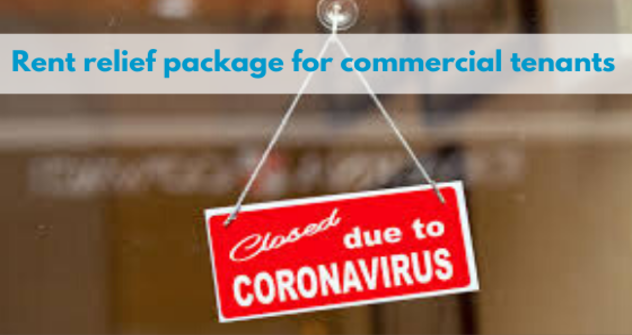Commercial leases – rent relief – code of conduct released
A set of good faith leasing principles for commercial tenancies where the tenant is an eligible business for the JobKeeper program.
Objective of the code is to share, in a proportionate, measured manner, the financial risk and cashflow impact during the COVID-19 period, whilst seeking to appropriately balance the interests of tenants and landlords.
Who would be eligible to negotiate with landlords
- tenants who qualify for the JobKeeper programme
- tenants suffering financial stress or hardship as a result of COVID-19
- annual turnover less than $50million (franchises at the franchisee level and for retail corporate groups at the group level)
- period during which the JobKeeper programme is operating
- with fair regard to the size and financial structure of those businesses
Overarching principles of the code
- ensure business continuity
- facilitate the resumption of normal trading activities at the end of COVID-19 and
- during a reasonable recovery period
- negotiate in good faith
- be open, honest & transparent
- agree arrangements to take into account the impact on revenue, expenses & profitability
- arrangements will be on a case by case basis, both proportionate and appropriate
- risk of default is ultimately borne by the landlord
Principles to be applied
The following principles should be applied as soon as practicable on a case by case basis during COVID-19 and a reasonable recovery period
- landlords must not terminate leases due to non-payment during COVID-19 (or reasonable subsequent recovery period)
- tenants must remain committed to the terms of their lease, subject to amendments negotiated under this code
- landlords must offer tenants proportionate reductions in rent in the form of waivers & deferrals, based on the reduction in the tenants trade during COVID-19 & subsequent recovery period
- rent waivers – must be no less than 50% of the total reduction (see details below)
- rent deferrals (see details below)
- landlords must not draw on tenants security for the non-payment of rent eg bank guarantee or personal guarantee
- landlords agree to a freeze on rent increases (except for retail leases based on turnover rent)
- landlords may not apply levies if tenants reduce opening hours or cease trade
Amount of waiver / deferrals
- relief is proportional to the reduction in trade as a result of COVID-19 plus a subsequent reasonable recovery period, consistent with eligibility assessments for the JobKeeper program
Proportional turnover reduction and rent relief (rent waiver & rent deferral)
Example 1 : 100% turnover reduction = 100% rent relief (waiver/deferral)
Example 2: 60% turnover reduction = 60% rent relief (waiver & deferral)
Rent waiver = 50% (minimum) of the proportion the tenant’s revenue has fallen
Rent Deferral = up to 50% recouped over minimum 24 months
parties are free to make an alternative commercial arrangement if they wish
Rent waivers
- must be no less than 50% of the total reduction in rent payable
- more than 50% where failure to do so would comprimise the tenant’s capacity to fulfil their ongoing obligations under the lease
- regard must also be given to the Landlord’s financial ability to provide additional waivers
- tenants may waive the requirement for a 50% minimum waiver, by agreement
- no fees, interest or other charges should be applied with respect to rent waived
- tenant should be provided an opportunity to extend its lease for an equivalent period of the rent waiver
Rent Deferrals
- rent deferrals must be amortised over the balance of the lease term, and
- for a period of no less than 24 months, whichever is greater
- unless otherwise agreed by the parties
- no punitive interest may be charged on deferrals
Summary of state relief for commercial tenants

Other Services (outgoings)
- any reduction in statutory charges eg. land tax, council rates, insurance will be passed on to the tenant in the appropriate proportion
- when a tenant is not able to trade, landlords should where appropriate seek to waive recovery of other expenses (or outgoings payable)
- landlords reserve the right to reduce services
When agreement can’t be reached
- the matter should be referred and subjected (by either party) to applicable state retail/commercial dispute resolution process for binding mediation
- tenants & landlords must not use mediation processes to prolong or frustrate the ability to reach an agreement
Simple! Smart! Different!
This information is intended to provide general information only and has been prepared without taking into account any particular person’s objectives, financial situation or needs. Before acting on such information, you should consider the appropriateness of the information
Copyright © 2020
The Horizon Group of Companies
All rights reserved.
Contact us
www.thehorizongroup.com.au
email: info@thehorizongroup.com.au
phone: 08 9344 7799
see us: 35 Cedric Street, Stirling WA
